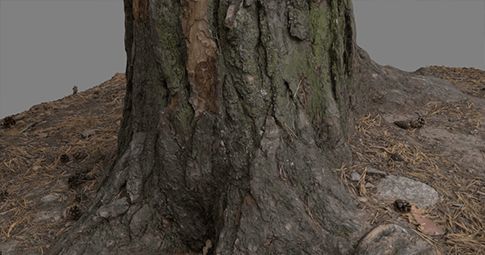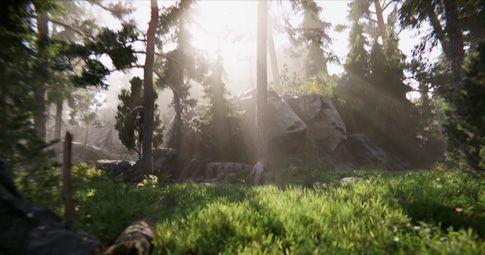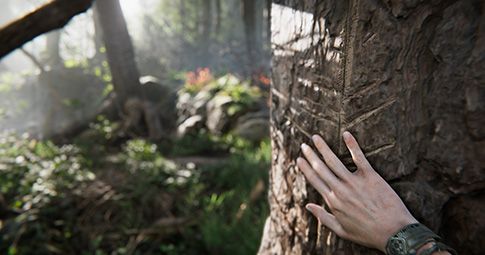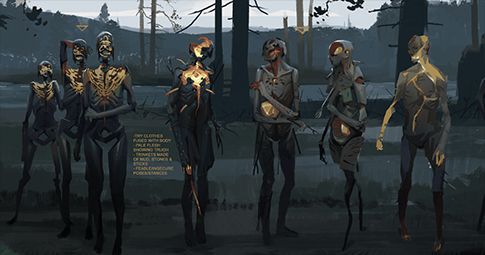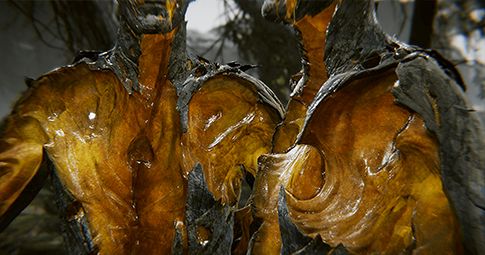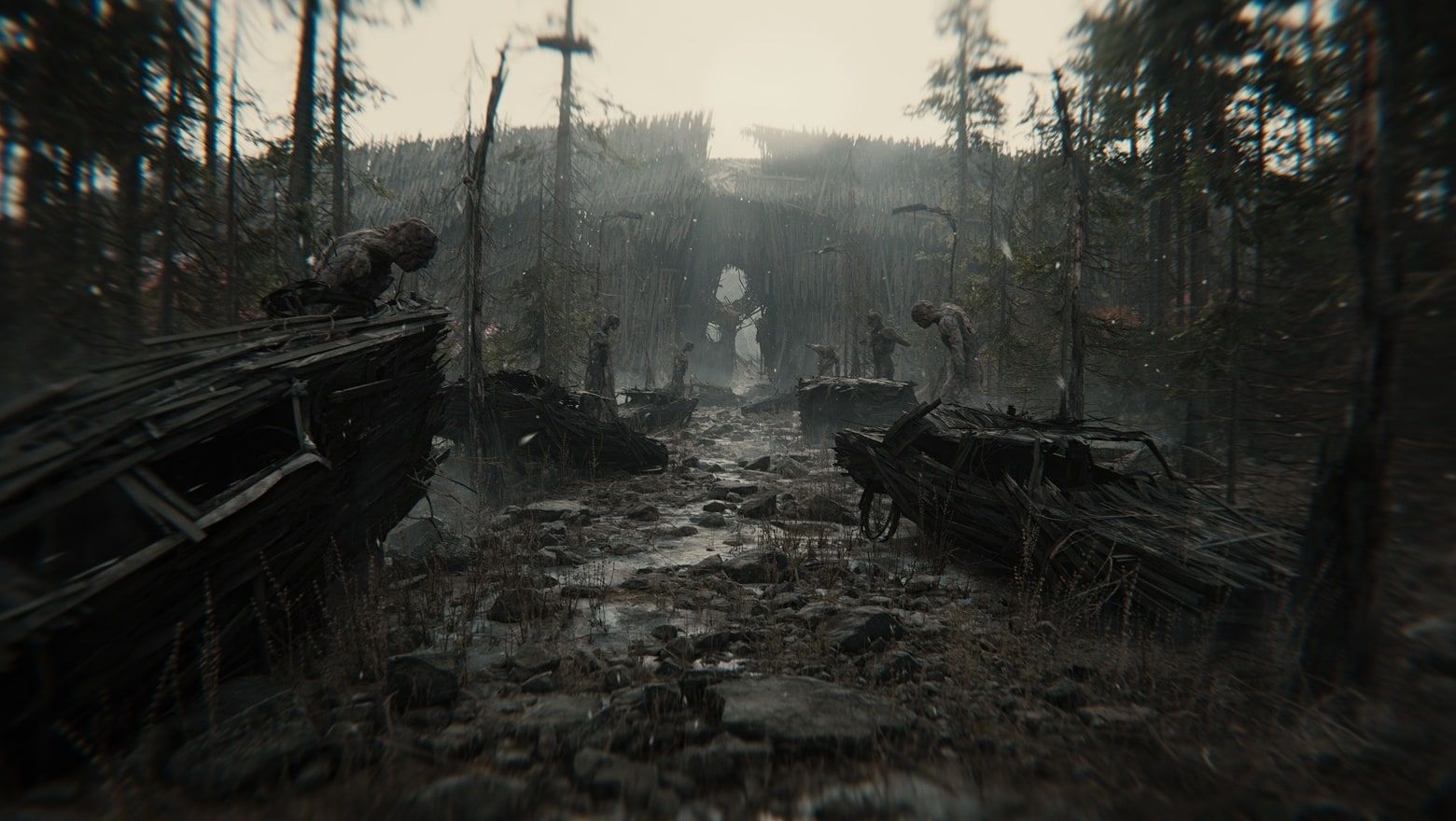

Book of the Dead

A powerful rendering pipeline
Book of the Dead demonstrates what is possible when using Unity 2018’s Scriptable Render Pipeline, which provides enhanced customizability of Unity’s rendering architecture, putting more control in the hands of the developers.
The project is built on the High-Definition Render Pipeline template which ships with Unity 2018 and various powerful customizations enabled by the SRP.
Making of blog series

Book of the Dead
The project ran 30 fps in 1080p on PS4 Pro, Xbox One X and Windows/DX11 (mid-range gaming system). It was also supported on macOS/Metal, Windows/Vulkan/DX12 as well as on PS4, Xbox One and Xbox One S.

Next level rendering
GDC 2018: Book of the Dead and Unity’s new HD Render pipeline—in-Editor demo at Unity’s Keynote.

Book of the Dead on PS4 Pro
Book of the Dead is an interactive demo that combines elements from both film and games. The trailer is representative of the actual gameplay experience. The environments are built in a way that allows the player to move around and explore.

Book of the Dead at Apple’s WWDC
Running in real-time on the MacBook and eGPU on the massive keynote stage screen at WWDC 2018.

Real-world environment assets
All of the natural environment assets in the demo are photogrammetry-scanned real-world objects and textures. The majority of them come from Quixel Megascans, a publicly available library of high-quality scanned assets, which is used widely by high-end game production and film VFX professionals alike.
For creating its own photogrammetry assets, the Demo team used the experimental Delighting Tool developed by Unity Labs in its workflow.

Pushing the envelope
Unity’s Demo productions drive advanced use of the Unity engine through autonomous creative projects. The team consists of experienced game professionals led by Creative Director Veselin Efremov, who writes and directs the demos and is responsible for their final look.
Focusing on graphics, the team explores and pushes the limits of what is possible to achieve with the Unity engine. The unique position of an internal team is that it is willing and able to take the risk—and pain—of basing entire productions at the bleeding edge of technological innovation.
Credits
Demo team
Writer, Director, Art Director
Veselin Efremov
Producer
Silvia Rasheva
Technical Director
Torbjorn Laedre
Concept Art Director
Georgi Simeonov
Animation Director
Krasimir Nechevski
Sr. Graphics Programmer
Robert Cupisz
Character Art
Plamen ‘Paco’ Tamnev
Lead 3D Artist
Plamen “Paco” Tamnev
Environment Art
Veselin Efremov
Zdravko Pavlov
Julien Heijmans
VFX Art
Zdravko Pavlov
Systems Programmer
Malte Hildingsson
Junior Programmer
Dominykas Kiauleikis
Cast
Karen
Louise Ryme
Interviewer
Joshua Lenn
The Bishop
Stephen Rappaport
Screwies
Leonid Yovchev
Additional art
Sound Design and Music
Aleksander Karshikoff
Additional Environment Art
Tihomir Nyagolov
Tinko Wiezorrek
Scanned Natural Assets
Quixel
Additional Character Art
Alexander Ponomarev
Audio Production
Pole Position
Motion Capture & Additional Animation
Aneta Spasova
Special Thanks: Nikolay Toshev, Mihail Moskov
Music
Requiem in D minor, K.626 (Lacrimosa)
Composed by Wolfgang Amadeus Mozart
Arranged and Performed by Aleksander Karshikoff
Unity Technologies R&D
Sebastien Lagarde, Tim Cooper, Kuba Cupisz, Jesper Mortensen, Thomas Hourdel, Yibing Jiang, Julien Ignace, Morten Mikkelsen, Ionut Nedelcu, Xiao Ling Yao, Yuanxing Cai, Vlad Andreev, Evgenii Golubev, Uygar Kalem, John Elliott, Tobias Alexander Franke, Kasper Engelstoft, Mikko Strandborg, Felipe Lira, Arnaud Carré, Natalya Tatarchuk
© 2021 Unity Technologies ApS
